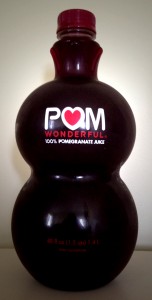In POM Wonderful LLC v. Coca-Cola Co., (June 12, 2014), the U.S. Supreme Court confirmed that companies can bring unfair competition actions under the Lanham Act even when their competitors have complied with the Federal Food, Drug, and Cosmetic Act (FDCA). The upshot of the decision is that food and beverage companies must carefully review their labeling, advertising and marketing campaigns to ensure that they are both complying with the FDCA and not subjecting themselves to Lanham Act exposure from making misleading product claims.

POM Wonderful LLC (“POM”) produces and sells a pomegranate-blueberry juice blend. POM brought a Lanham Act suit against Coca-Cola for allegedly marketing one of its juices in such a way that it misled consumers into thinking that the product contained much more pomegranate and blueberry juice than it actually does. In fact, POM alleged that, together, pomegranate and blueberry juice made up only .6% of Coca-Cola’s product. Coca-Cola moved to dismiss in the District Court on the grounds that the FDCA and its regulations preclude and preempt any Lanham Act challenges to the method or content of Coca-Cola’s marketing of its juices. The Ninth Circuit affirmed in relevant part, and POM appealed.
The Lanham Act was enacted in 1946, for the purpose of “making actionable the deceptive and misleading use of marks in . . . commerce . . . [and] to protect persons engaged in . . . commerce against unfair competition . . . .” 15 U.S.C. Section 1127. The Act creates a cause of action based on unfair competition through misleading advertising or labeling. This provision allows competitors to sue each other, with the happy side result that consumers benefit from the elimination of misleading marketing campaigns. Put another way, the statute is a way for the government to out-source some of its enforcement duties at no cost.
Coca-Cola argued that the FDCA statutory regime allowed it to use the allegedly misleading label. Unlike the Lanham Act, which relies on private actors to enforce its provisions, the FDCA and its regulations grant only the U.S. government the standing and authority to employ the statute.
The Supreme Court granted certiorari to consider whether a private party may bring a Lanham Act claim regarding a food or beverage label that is regulated by the FDCA. In addressing the preemption argument, the court observed that this was not a preemption case per se, since there were two federal statutes at issue, and not one state statute and one federal statute.
The court analyzed the two statutes and determined that there was no intent by Congress for the FDCA to act as an implied repeal of the Lanham Act. Rather, the Court observed, the statutes complement each other because while, “[b]oth touch on food and beverage labeling, . . . the Lanham Act protects commercial interests against unfair competition, while the FDCA protects public health and safety.” Specifically, the Court pointed out, the FDA does not pursue enforcement against all objectionable food labels, and so the Lanham Act helps fill a void for competitors, with the indirect result that consumers also benefit. And the Court noted that while the FDCA is enforced by the Food and Drug Administration, the Lanham Act permits private actors to sue competitors to “protect their interests on a case-by-case basis.”
The key takeaway from this decision is that a company’s strict compliance with the FDCA does not ensure that it will be free from a Lanham Act suit by a competitor. So food and beverage companies must scrutinize their labeling, advertising and marketing campaigns to ensure that they do not leave themselves exposed to Lanham Act liability.
As the Court noted, the FDA does not preapprove food and beverage labels, unlike drug labels. Food and beverage companies, then, might reasonably believe that they are in compliance with the FDCA, only to find themselves subject to a Lanham Act suit, and, possibly, liability. Companies that do business in California must also make sure that they do not run afoul of California’s strict Unfair Competition Law as well, so a self-audit for possibly misleading labels is vital.
From a philosophical perspective, this holding seems to affirm the principle that private corporations with real financial stakes in the proceedings are better positioned to regulate the market than consumers or the government. Ultimately, should the cases go to trial, however, the public will still have its say in the matter.
Read the opinion in full.

